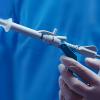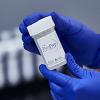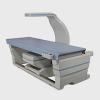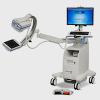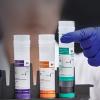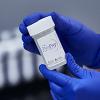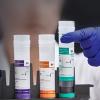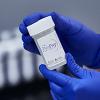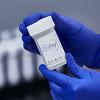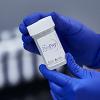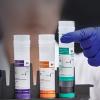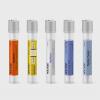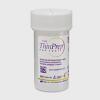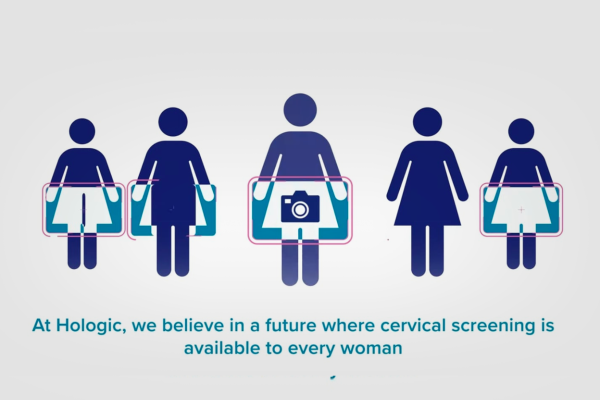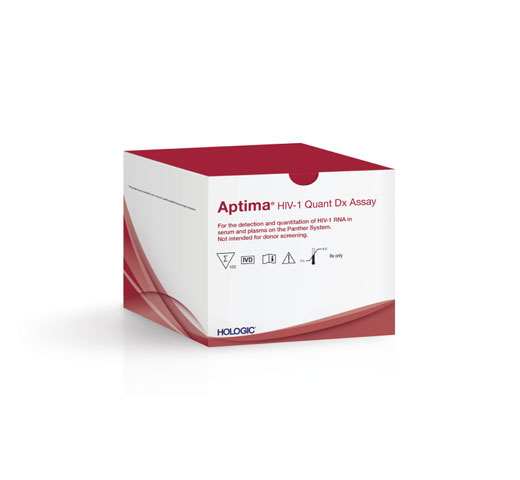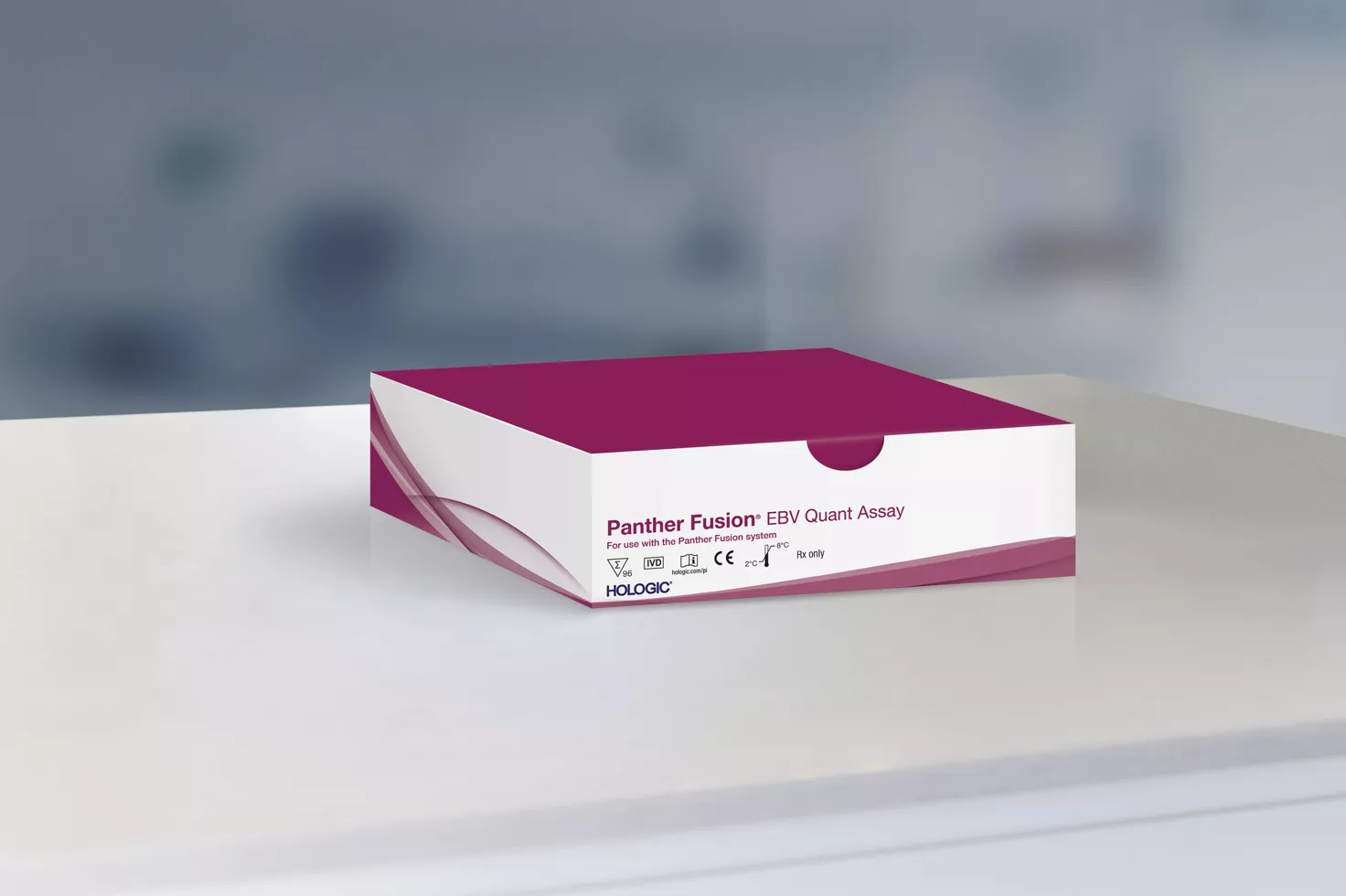
Accurate & Highly Reproducible Quantification
Quantitative nucleic acid amplification testing (NAAT) from plasma specimens is used for monitoring of EBV infection and disease in transplant recipients because it is rapid, sensitive, convenient, and non-invasive. Recent guidelines recommend a weekly monitoring of EBV viral load to support decisions to start anti-EBV therapy and to monitor response to therapy.1
Sample-to-result Within a Single Integrated Instrument
The Panther Fusion EBV Quant Assay on the Panther Fusion system combines assay performance with flexible automation for viral load monitoring.
Rapid turnaround time & random access
No more batching, simply load samples with different test orders as they arrive. STAT result option is available with the ability to prioritise results. First results in 2 hours, 41 minutes.2
Streamlined Plasma Processing
No need for aliquoting or manual sample transfer for plasma primary tube processing. Plasma tube flexibility with both PPT and EDTA tubes validated.
Flexible sample & reagent loading
Panther Fusion has ready to use, single dose assay reagent cartridges, primary tube processing with positive sample identification and you can run multiple assays from a single specimen tube at the same time.
Consolidated calibration & controls
The Panther Fusion assay calibration is valid for up to 60 days. The Panther Fusion controls are valid for up to 30 days.3
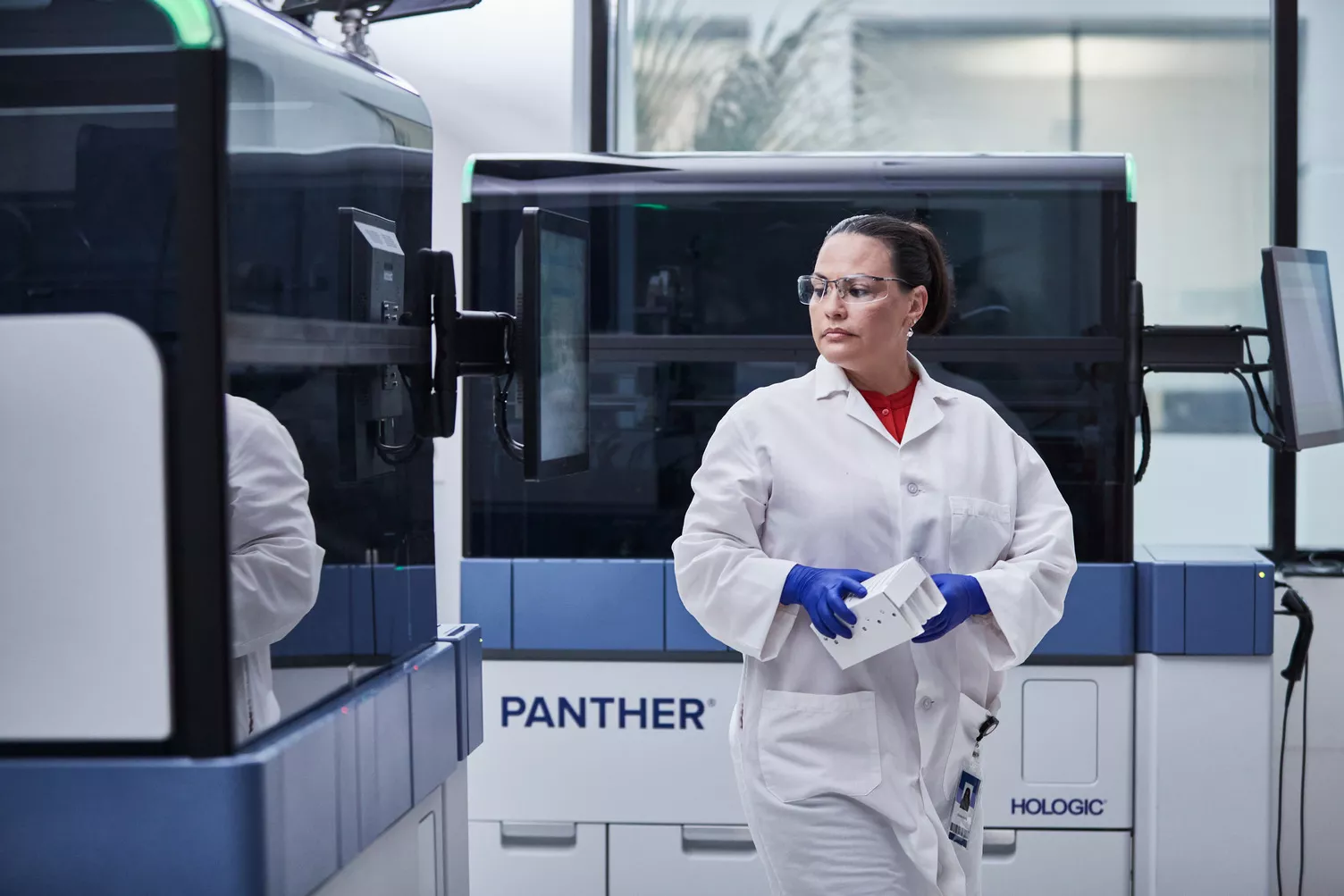
Simplify & Scale the Future of Diagnostics
The Panther Fusion EBV Quant Assay is part of the Hologic Molecular Scalable Solution, a portfolio combining a broad, high performing assay menu with high throughput automation. Designed to flexibly scale to meet your needs, from a single patient result to population level screening.
High Accuracy with Full Automation
The high reproducibility of the assay provides confidence that results are accurate, regardless of where they are performed.3
54.1 IU/mL
Plasma
LoD
120 IU/mL
Plasma
LLoQ*
2.08-9.18 log IU/mL
Plasma
Linear range
Take Control of your EBV Viral Load Testing3
- Intended use: EBV viral load monitoring
- Technology: Real-time Polymerase Chain Reaction
- Target region: EBNA-1 gene
- Types: 1-2
- Sample types: Plasma
- Sample Input Volume: Primary tube (EDTA, PPT): 1.2 mL plasma. Secondary tube: 700 μL plasma.

Quantitative NAAT Testing for Rapid & Sensitive Monitoring
EBV belongs to the herpesvirus family and there are two main genotypes. Following a primary infection, EBV enters the circulating B lymphocyte, and remains in a latent state. It is estimated that 90% of the population worldwide is infected.4 EBV infection can be asymptomatic during childhood. However, the infection could lead to infectious mononucleosis5 in adults and is associated with different types of cancers: lymphomas, leukemias, epithelial malignancies, and gastric cancer.6 In immunocompromised individuals, the reactivation of EBV may result in malignant lymphoproliferation and is an important cause of morbidity and mortality. The majority of EBV-associated tumours often occur within the first year following transplantation.6
Evidence. Insight. Collaboration.
Our education portal improves patient care through excellence in education, communication of clinical and scientific evidence, and partnerships with the healthcare community.
Insights
*Established using the 1st WHO International Standard. High correlation against a comparator assay on retrospective and contrived plasma and urine specimens across the linear range of the assay.
Nijland, ML, Kersten MJ, Pals ST, Bemelman FJ, ten Berge JJM. 2016 Transplantation Direct 2016;2: e48 doi: 10.1097/ TXD.0000000000000557
Panther/Panther Fusion System Operator´s Manual. AW-26055-001 Rev 001, San Diego, CA: Hologic Inc.; 2022.
Panther Fusion EBV Quant assay [package insert]. AW-26019-001 Rev. 2. San Diego, CA: Hologic, Inc.;2023
Tzellos S, Farrell PJ. Epstein-barr virus sequence variation-biology and disease. Pathogens. 2012 Nov 8;1(2):156-74. doi: 10.3390/pathogens1020156. PMID: 25436768; PMCID: PMC4235690.
Centers for Disease Control and Prevention (CDC). Epstein-Barr Virus and Infectious Mononucleosis. (2016). https://www.cdc.gov/epstein- barr/about-mono.html
Kimura H, Kwong YL. EBV Viral Loads in Diagnosis, Monitoring, and Response Assessment. Front Oncol. 2019 Feb 12;9:62. doi: 10.3389/fonc.2019.00062. PMID: 30809508; PMCID: PMC6379266.
Documents
Safety Data Sheets
Package Inserts
Related Products
1434
Hologic BV, Da Vincilaan 5, 1930 Zaventem, Belgium.
Notified Body number wherever applicable
EC Representative Information wherever applicable


